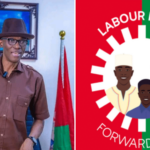The Executive Director of the Women’s Rights and Health Project (WRAHP), Bose Ironsi, has stated that sexual and gender-based violence (SGBV) remains a pervasive challenge in Nigeria.
She added that the menace often leaves survivors struggling to understand and navigate complex legal systems while also facing societal stigma.
Bose Ironsi made this assertion in her address at the Community Legal Clinic on sexual and gender-based violence in Uhumwonde Local Government Area, Edo State, organised by WRAHP.
She stated that WRAHP’s Legal Clinic initiative aims to address the persistent issues of sexual and gender-based violence within communities in the country, with a focus on empowering survivors.
According to the Executive Director, the clinic also seeks to bridge the gap in legal services, ensuring access to justice for underprivileged and marginalised groups, particularly women and girls.
Beyond providing legal advice, the clinic will serve as an educational platform, empowering participants with knowledge about their rights under key legal frameworks, including the Violence Against Persons Prohibition Act (VAPP).
The clinic offers comprehensive services to ensure survivors receive holistic support. Participants will access counselling services on human rights, SGBV laws, and practical safety planning.
Through knowledge-sharing sessions, survivors and community members will gain invaluable insights into their legal rights and the resources available to them, fostering greater awareness and resilience within the community.
This initiative extends its reach beyond individual survivors by engaging the broader community.
By working closely with key stakeholders, including artisans, market traders, and religious leaders, the clinic promotes a collaborative approach to addressing SGBV.
This inclusive engagement seeks to build a network of informed and supportive community structures that actively contribute to the prevention of abuse and the protection of survivors, Ironsi stated.
Addressing participants at the event, a Benin-based lawyer and gender advocate, Henry Amaechi Nwazor, declared that the refusal by parents to feed or abandon their spouses, children, or other dependants without means of sustenance attracts a jail term, an option of a fine, or both upon conviction in Edo.
Earlier, Juliet Akpojevba, Edo State Programme Officer, Women’s Rights and Health Project (WRAHP), urged participants to explore the SGBV psycho-social support system to overcome emotional challenges through counselling sessions.
ALSO READ FROM NIGERIAN TRIBUNE






